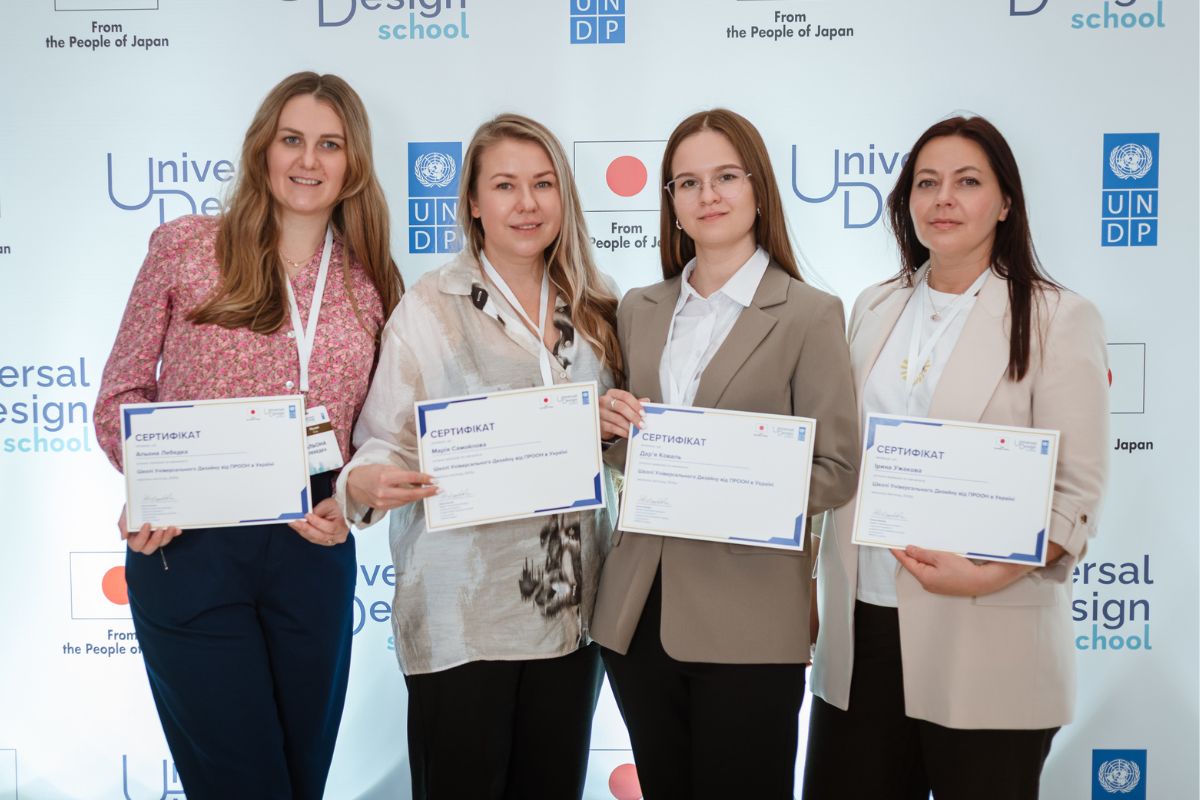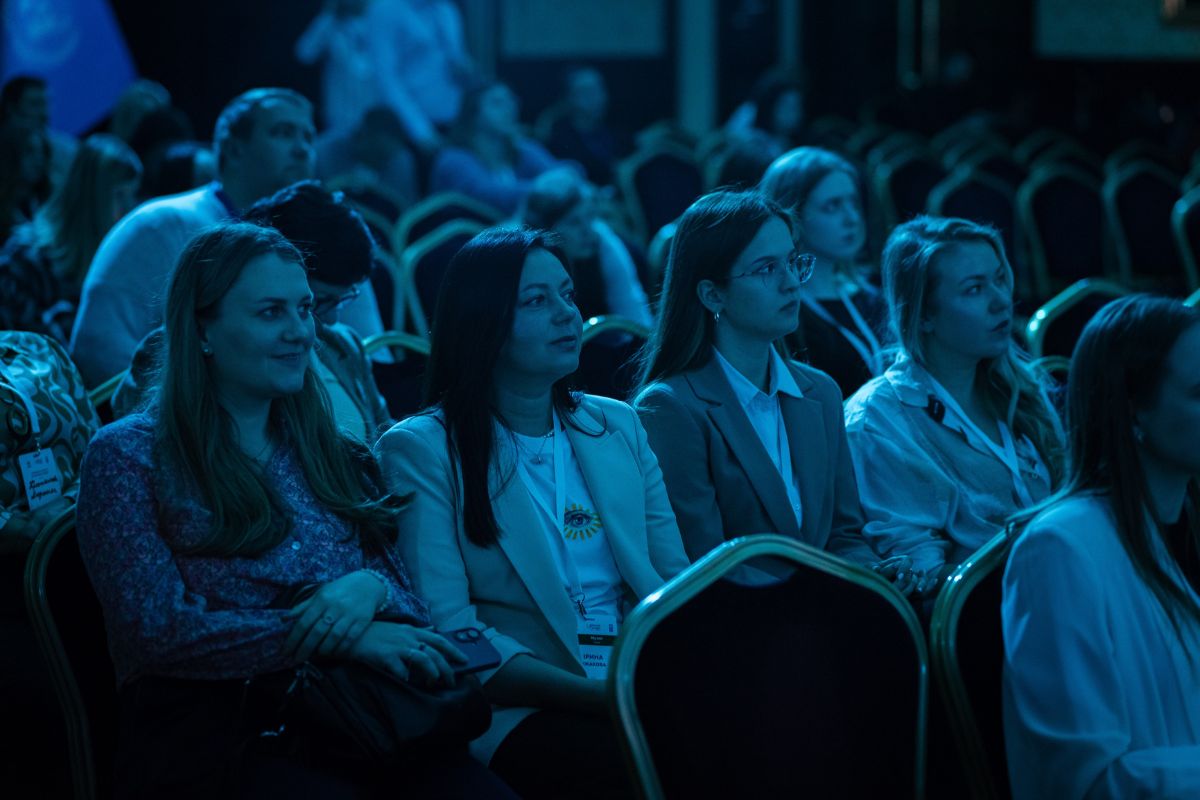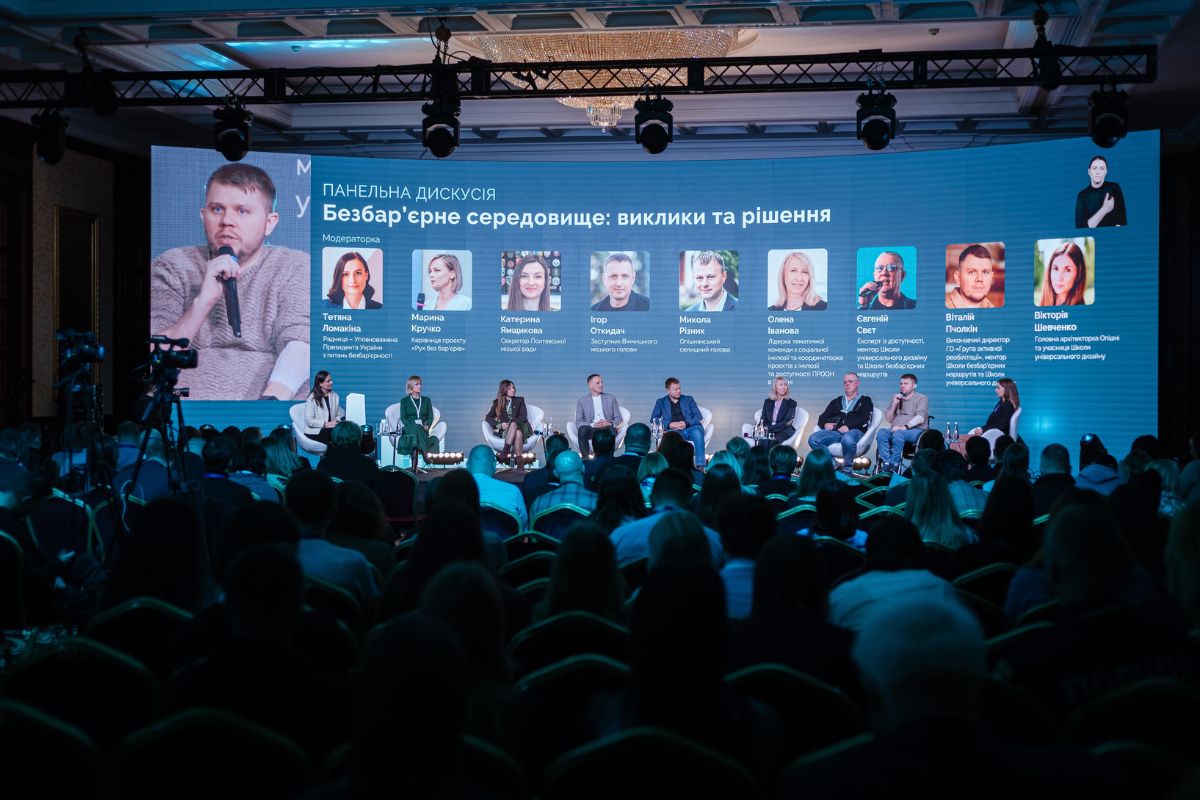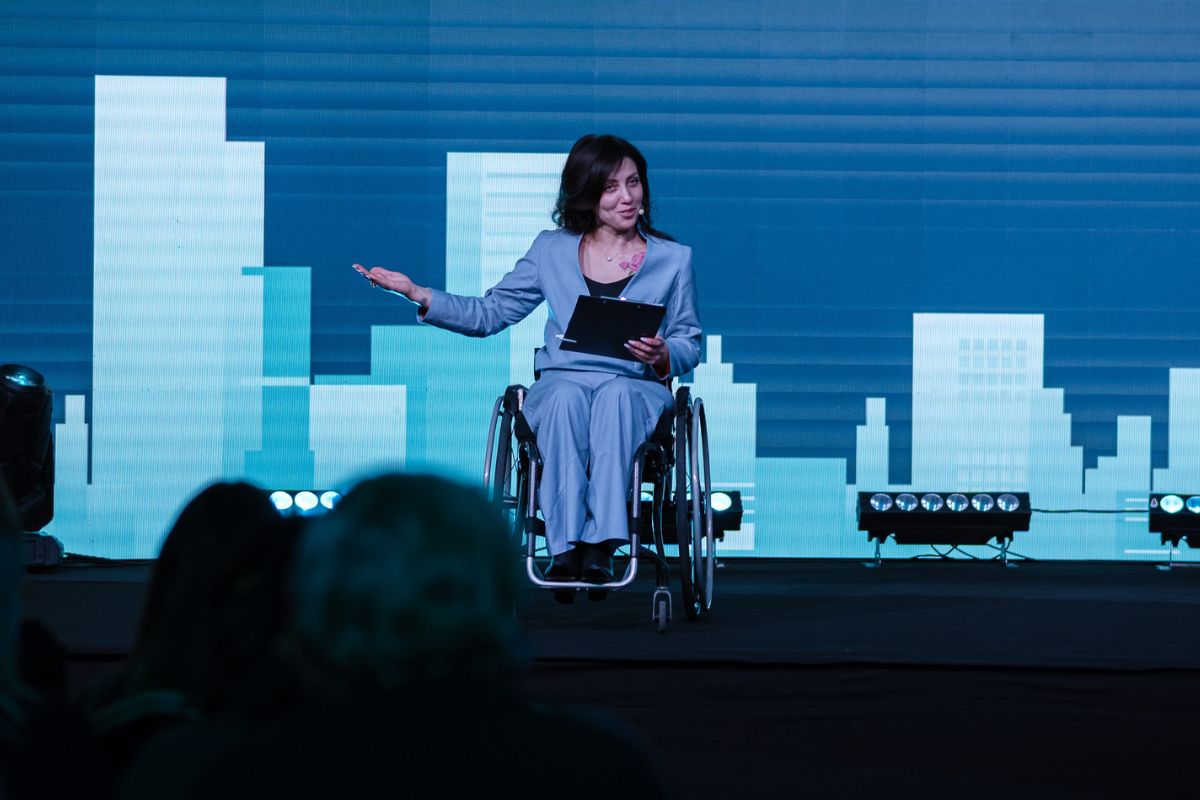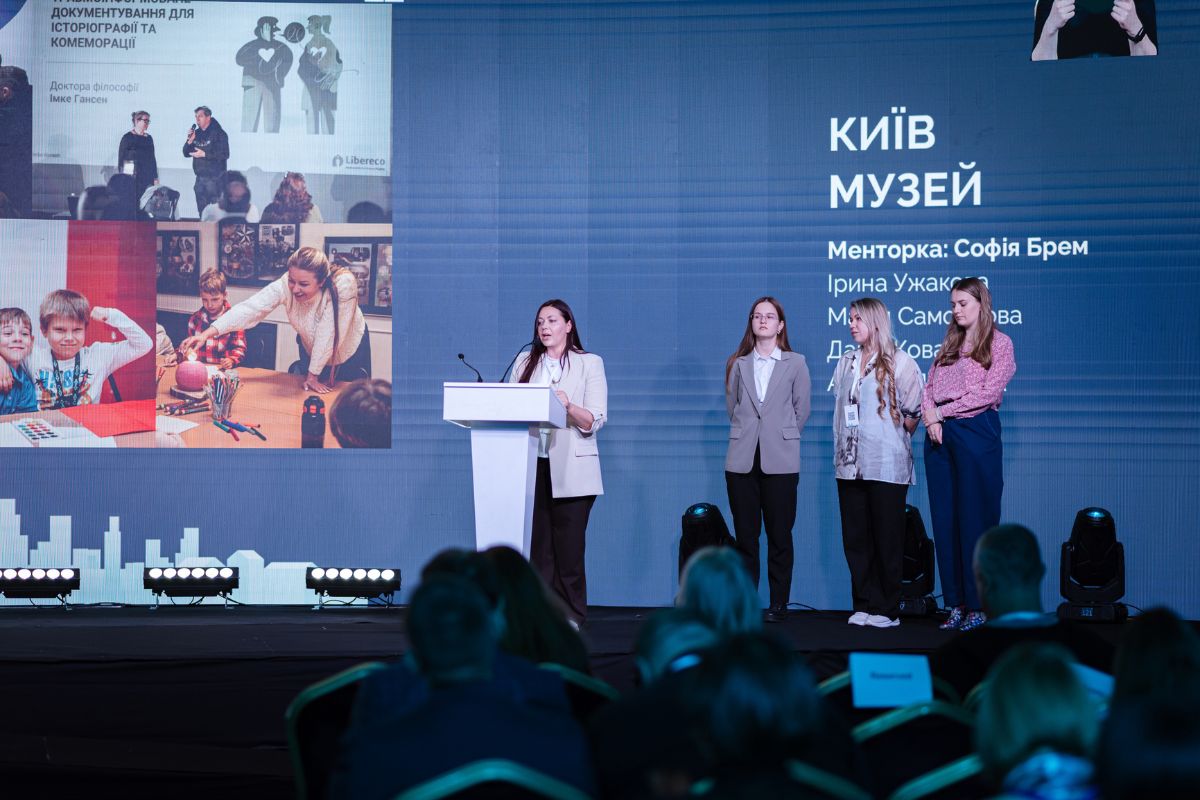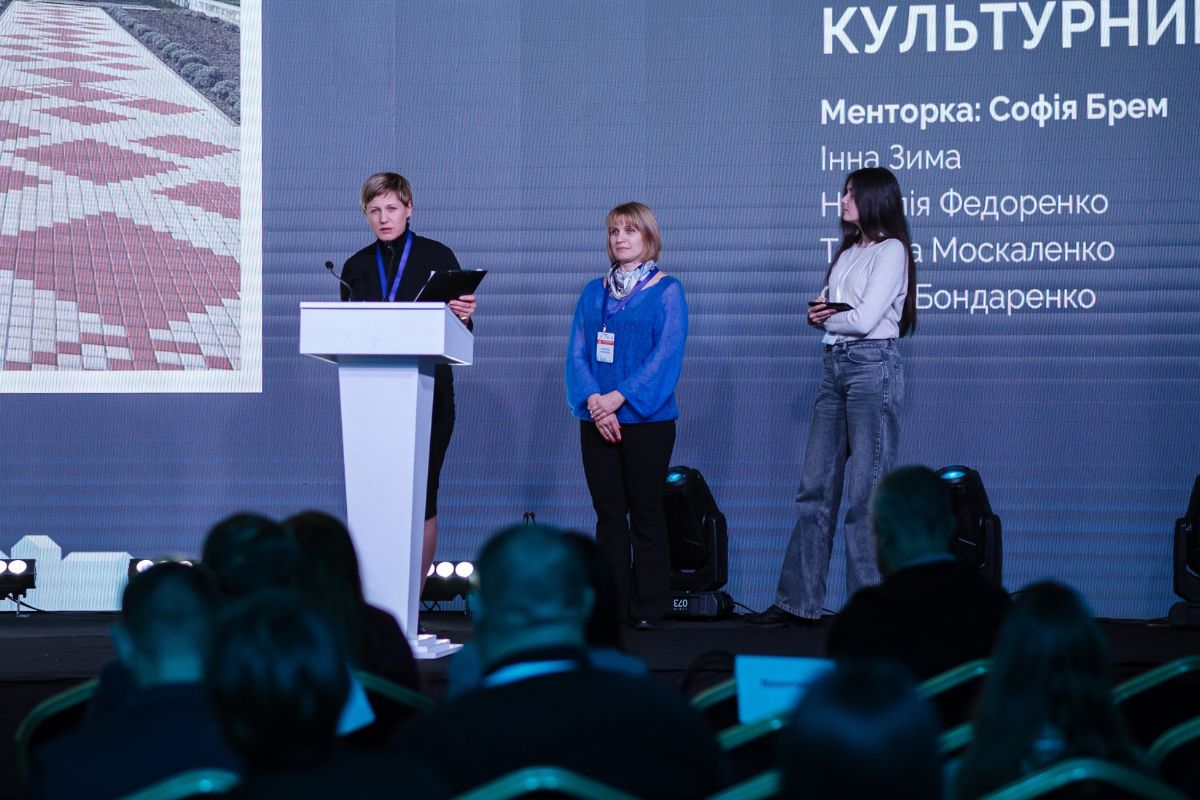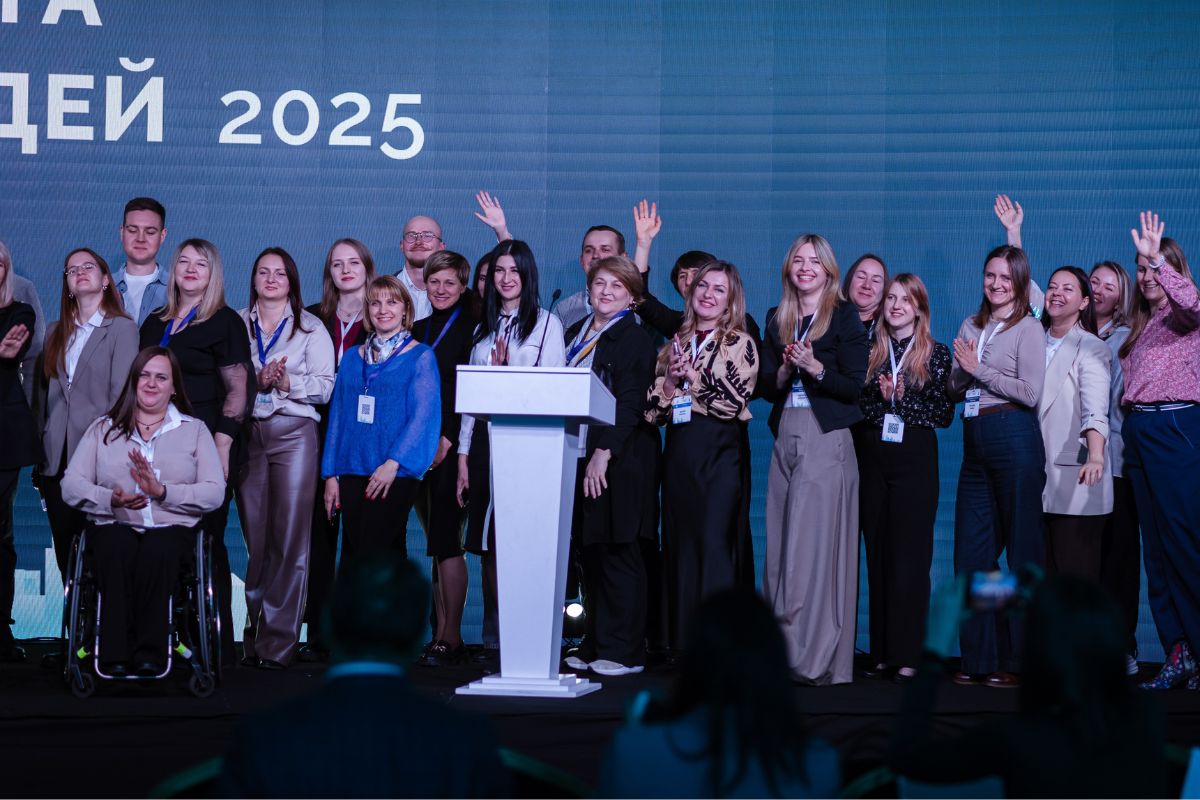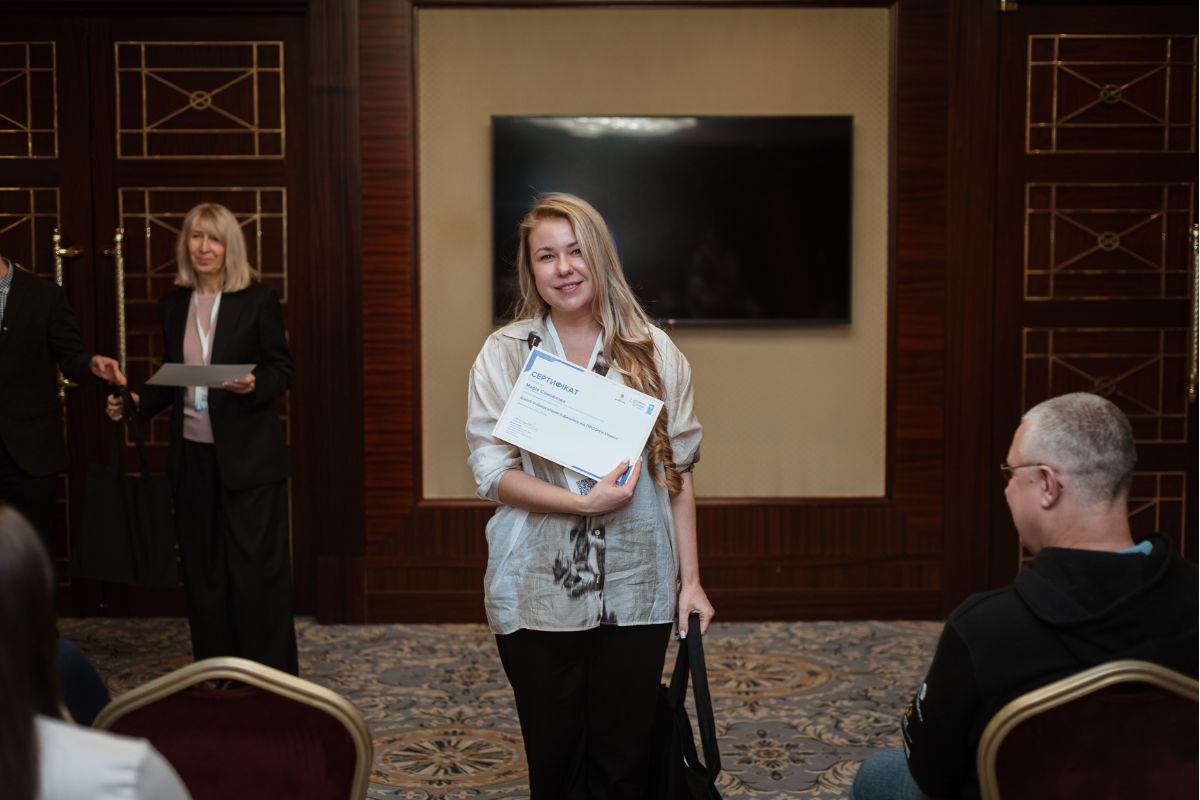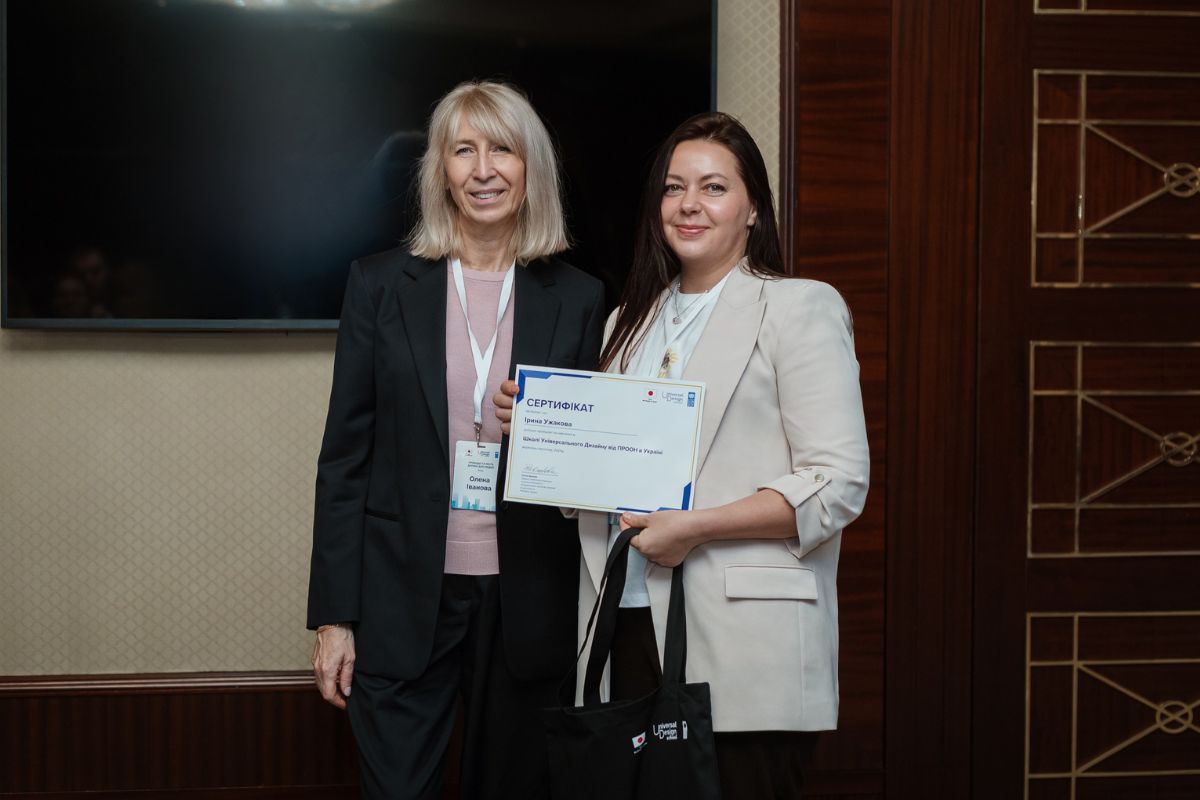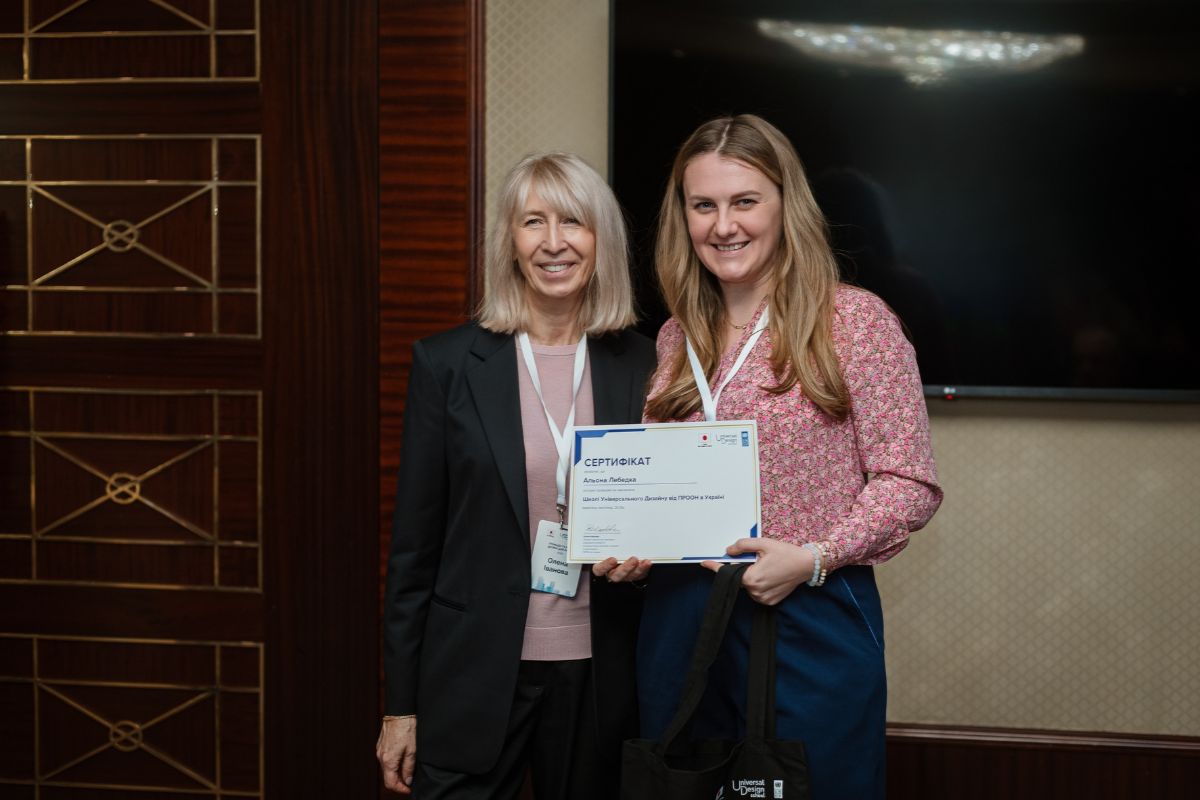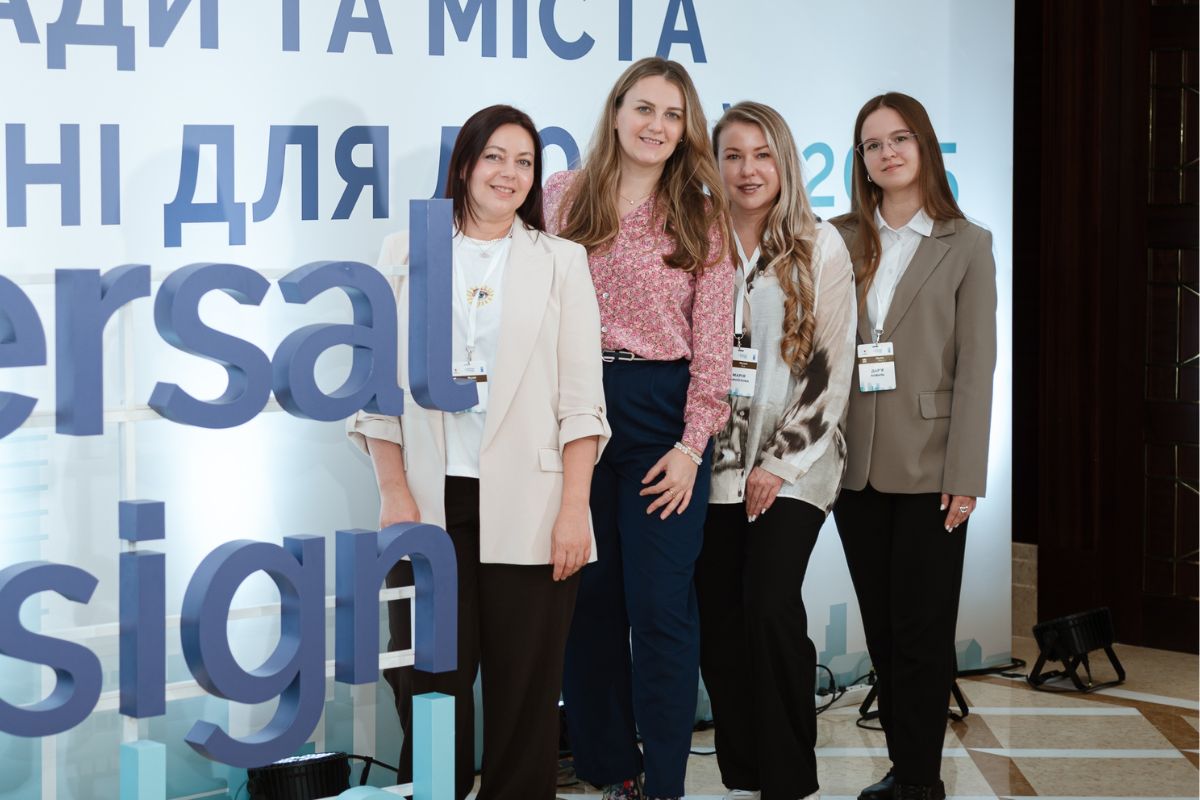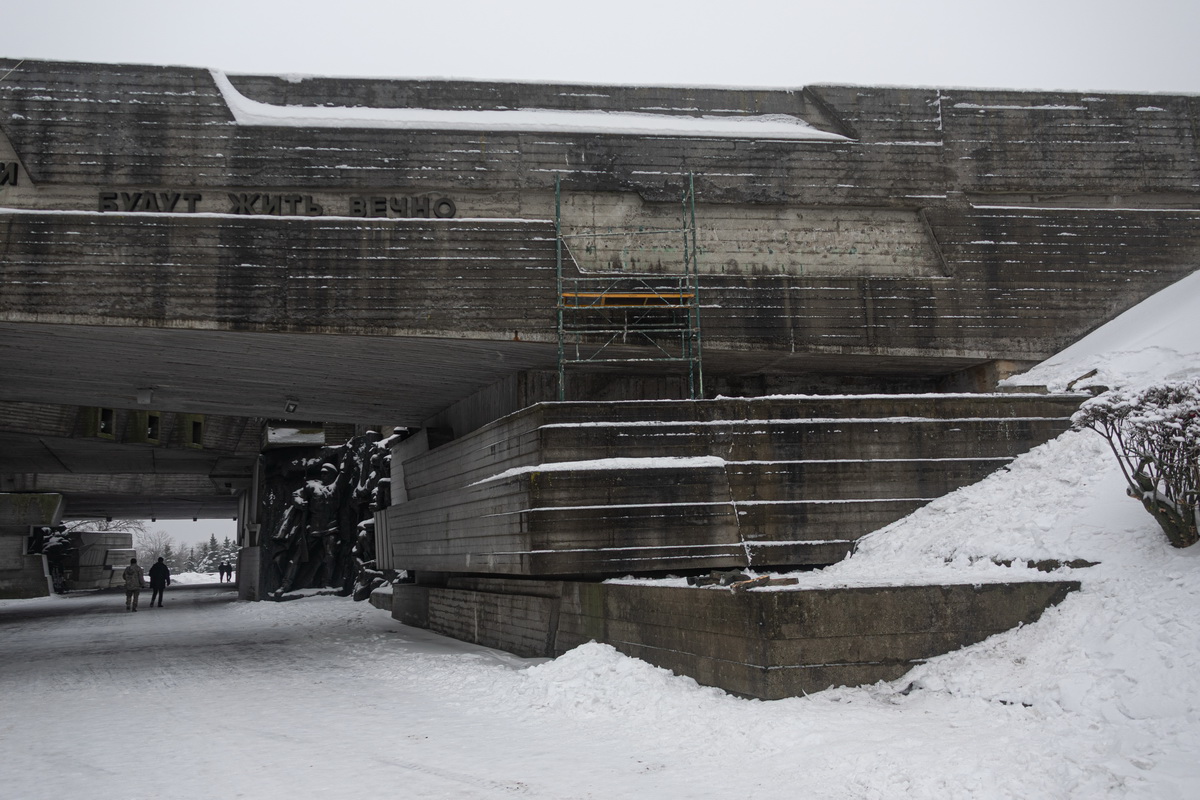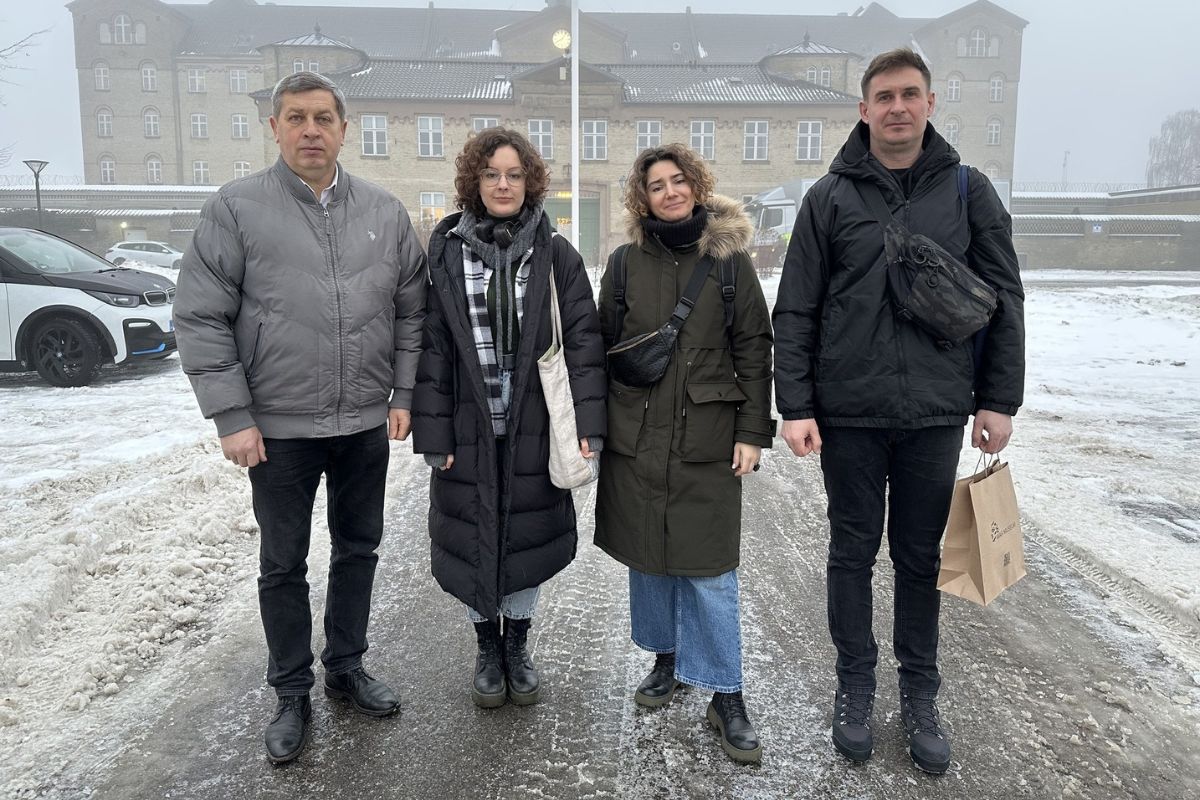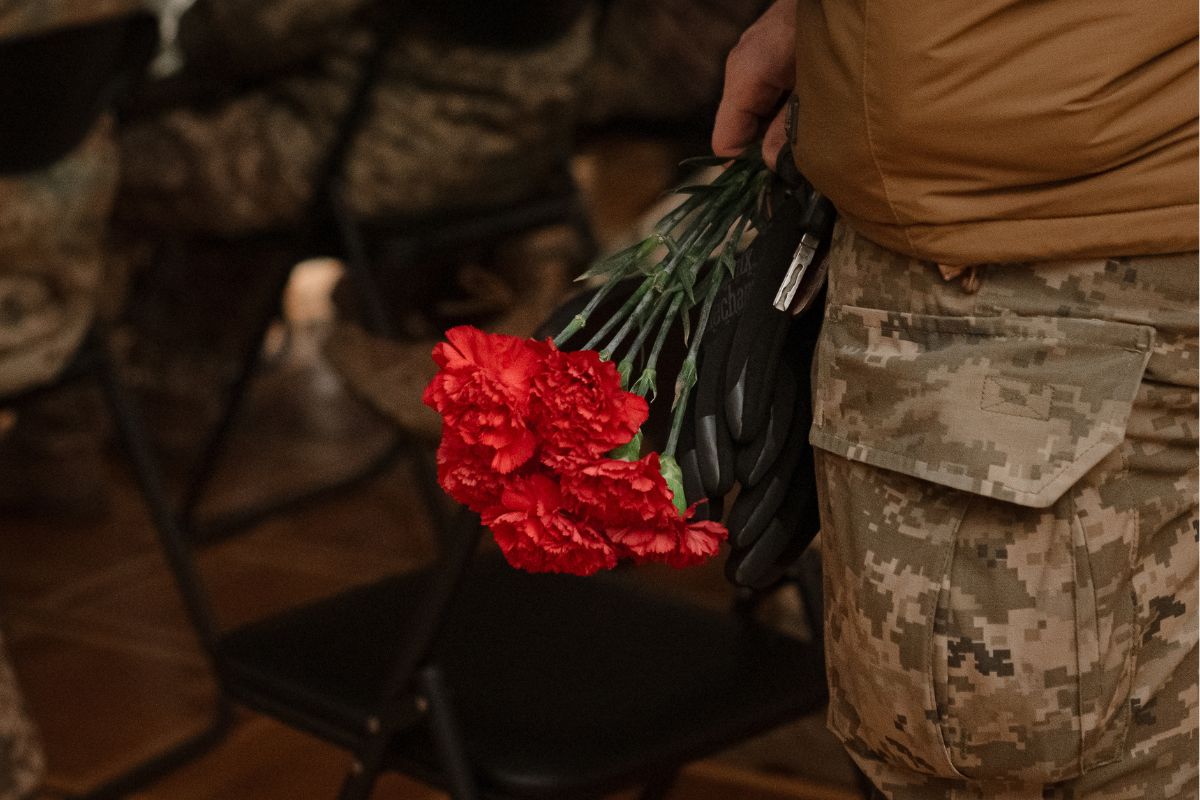On 14 November, more than 150 architects, urbanists, international partners, and Ukrainian community representatives gathered at the conference “People-Friendly Communities and Cities – 2025.” The event focused on practical solutions for Ukraine’s recovery that make cultural spaces and urban environments more accessible and comfortable for everyone. Participants presented projects on transforming theatres and museums, creating veteran and community hubs, as well as barrier-free routes within cities. The School of Universal Design and the School of Barrier-Free Routes became platforms where specialists develop and implement models for change.
Deputy Minister of Culture of Ukraine Anastasiia Bondar emphasized the key role of universal design: “For cultural institutions, universal design is not only about comfort. It is about dignity, openness, and modernity. In a time of recovery, culture must be a space without barriers or exclusions.”
At the conference, the War Museum’s barrier-free access team presented a project for transforming the Exhibition Centre. Inclusivity is an important part of the Museum’s mission, as we work with veterans, people with disabilities, families, and other vulnerable groups. The Exhibition Centre – a constructivist-style building currently housing exhibitions and a café – has several architectural barriers: level changes, improper ramps, and insufficient navigation.
The barrier-free access team – Iryna Uzhakova (team lead) and Mariia Samoilova (accessibility researcher), together with architect and interior designer Dariia Koval and social and information designer Aliona Lebedka – developed a comprehensive plan for improvements after completing training at the School of Universal Design. The plan includes installing a safe and convenient staircase group at the Memorial, creating an inclusive entrance group for the Exhibition Centre, improving the accessibility of the restroom, and converting part of the premises into rooms for resource-based and restorative activities. This is an important step toward transforming the institution.
The implementation of these changes will make the War Museum’s space accessible to everyone – a wide range of visitors, veterans, families, communities, and researchers working with themes of memory, experience, and recovery. The War Museum consistently develops inclusive practices that affirm accessibility as an expression of respect for every person and their story.
